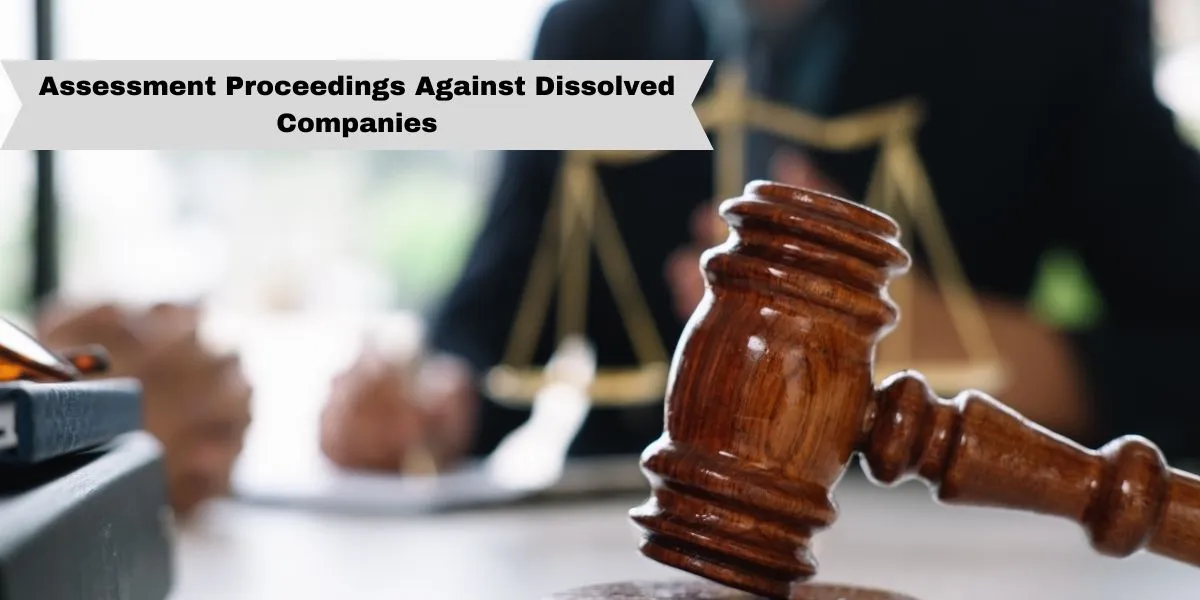Assessment Proceedings Against Dissolved Companies

The income tax authorities conduct assessment proceedings if they do not agree to the tax information and submissions by the assessees. However, the government has provided a long time after the end of the relevant financial year till which assessment can be done by the tax authorities. It might happen that the assessee company itself gets dissolved and after dissolving, the assessment proceedings are undertaken by the tax authorities. What should be done in such cases? Are assessment proceedings against a dissolved company valid? Let’s find out!
Assessment of Dissolved Companies
To determine whether the assessment of dissolved companies is valid or not, we need to look at Section 189 of the Income Tax Act, 1961. As per this section, if the business or profession of a firm is discontinued and the firm is dissolved, the income tax authorities are empowered to make an assessment of the total income of the firm as if no such discontinuance or dissolution has taken place. Further, all the provisions relating to the levy of penalty and any other sum chargeable under the provisions of this act shall apply to such assessment.
Further, the income tax officer or appellate assistant commissioner may impose or direct the imposition of a penalty if the firm is found guilty of any acts as specified in the provisions. Every person who, at the time of such discontinuance or dissolution of the firm, was a partner of the firm (legal representative in case of deceased partner) shall be jointly and severally liable for the amount of tax, penalty and any other sum payable following such assessment.
Case Law on Assessment of Dissolved Companies
In the case of Ravinder Kumar Aggarwal vs. Income Tax Officer, notice under section 148 was issued to RKA International Private Limited which was struck off from the Register of Companies on 30th June 2017. As the notice was issued on 28th March 2019 in the name of an already struck-off company, the petitioner sought quashing of the notice on the grounds that it was null and void. The income tax department contended that the company failed to file its return of income for AY 2012-13 which makes it a fit case for issuing notice under section 148. Further, an amount of Rs. 10,09,00,000 has escaped assessment for the same assessment year.
The Court Resorted to Section 252(3) that read as follows
“If a company, or any member or creditor or workmen thereof feels aggrieved by the company having its name struck off from the register of companies, the Tribunal on an application made by the company, member, creditor or workman before the expiry of twenty years from the publication in the Official Gazette of the notice under sub-section (5) of section 248 may, if satisfied that the company was, at the time of its name being struck off, carrying on business or in operation or otherwise it is just that the name of the company be restored to the register of companies, order the name of the company to be restored to the register of companies, and the Tribunal may, by the order, give such other directions and make such provisions as deemed just for placing the company and all other persons in the same position as nearly as may be as if the name of the company had not been struck off from the register of companies”
Thus, the company if restored by the tribunal, will be placed in the same position as if the name of the company has not been struck off from the Register of Companies. Thus, the tribunal restored the company to enable the income tax department to recover its dues.
ASC’s Opinion
Thus, it can be said that the assessment and reassessment proceedings against the dissolved company can be conducted as dissolution does not relieve the company from the liabilities of its action taken during the course of its operation. There have been numerous case laws, both supporting and opposing the assessment proceedings of dissolved companies, each having its own facts and merits. The individual facts of each case play an important role in determining the validity of the assessment proceedings. In case you need any assistance in relation to the income tax assessment proceedings, feel free to contact the ASC Group.

Leave a Reply